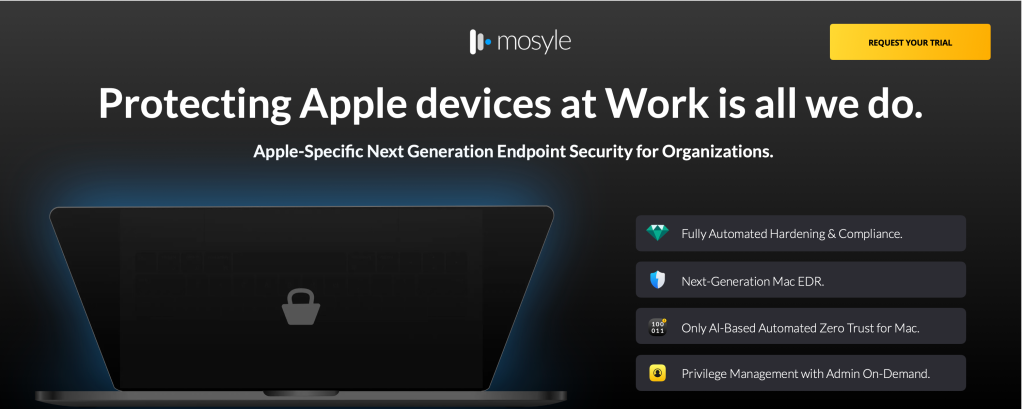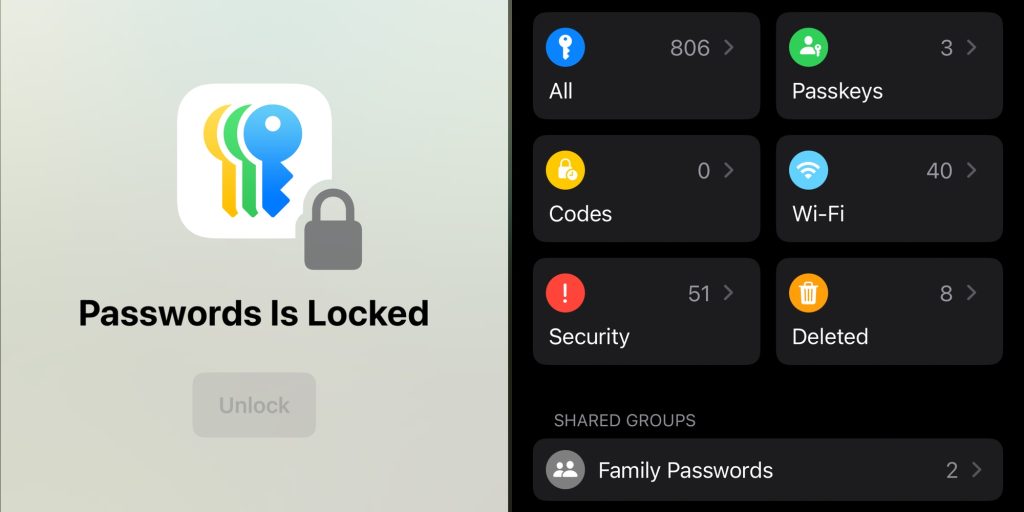

9to5Mac Security Bite is exclusively brought to you by Mosyle, the only Apple Unified Platform. Making Apple devices work-ready and enterprise-safe is all we do. Our unique integrated approach to management and security combines state-of-the-art Apple-specific security solutions for fully automated Hardening & Compliance, Next Generation EDR, AI-powered Zero Trust, and exclusive Privilege Management with the most powerful and modern Apple MDM on the market. The result is a totally automated Apple Unified Platform currently trusted by over 45,000 organizations to make millions of Apple devices work-ready with no effort and at an affordable cost. Request your EXTENDED TRIAL today and understand why Mosyle is everything you need to work with Apple.
For years, Apple provided its built-in Keychain password management tool hidden within the Settings app. This tool allowed passwords to be automatically generated and saved in the Passwords section, but it could often be cumbersome when a user needs to quickly manage particular logins.
Now, in iOS 18, iPadOS 18, and macOS Sequoia, saved passwords have broken away into its own rounded corner island on the home screen called Passwords. Apple hopes this new app will make managing credentials more convenient for users. However, there are concerns that it may not offer enough features to replace paid password managers. In my opinion, that may not be the goal. Let me explain…

Weighing the costs and benefits
When you open Passwords for the first time, you’ll find the layout very similar to the Reminders app with two rows of categories: All, Passkeys, Codes, Wi-Fi, Security, and Deleted. It’s very simple and easy to navigate.
The app allows users to view saved credentials, manage passkeys, create rotating verification codes, review saved Wi-Fi logins, and receive alerts about passwords that have recently been compromised in data leaks. With the addition of Family Passwords sharing, the app is a handy hodgepodge of features that previously existed elsewhere now in a single place, accessible from any signed-in Apple device.
But there are some drawbacks.

Similar to a password manager like 1Password for example, stored credentials in the Passwords app can be accessed from any signed-in Apple device. You can even access your stored passwords on Windows via the iCloud for Windows app. However, there is no browser or Android support. The Passwords app is exclusive to Apple devices with the exception of the iCloud Windows app. This can be an inconvenience if you use Android and Mac or a combination of mixed-platform devices.
Moreover, if you use a paid service like 1Password, you know it provides features beyond basic password storage, including secure notes, document storage, cross-browser integration, two-factor authentication, etc. These are not offered in Apple’s free Passwords app.
Wrap-up
In conclusion, the Passwords app is in its infancy. Its basic, easy-to-use layout is clearly targeted at people who have never used a password manager before.
If you’re already using a service like 1Password and find it effective, I don’t see a compelling reason to switch to Passwords, despite being free. You’ll find while the app primarily focuses on basic credential management, it could be a convenient choice for newcomers or those who prefer an integrated solution, as Passwords is available across iOS 18, iPadOS 18, macOS Sequoia, and even visionOS 2. Ultimately, the decision depends on your needs and preferences.
I’ve been a 1Password subscriber for nearly a decade now. It’s the best $4 I spend each month. Nonetheless, I’m excited to see where the app goes from here.
About Security Bite: Security Bite is a weekly security-focused column on 9to5Mac. Every week, Arin Waichulis delivers insights on data privacy, uncovers vulnerabilities, or sheds light on emerging threats within Apple’s vast ecosystem of over 2 billion active devices to help you still safe.
Follow Arin: Twitter/X, LinkedIn, Threads
More in this series
FTC: We use income earning auto affiliate links. More.